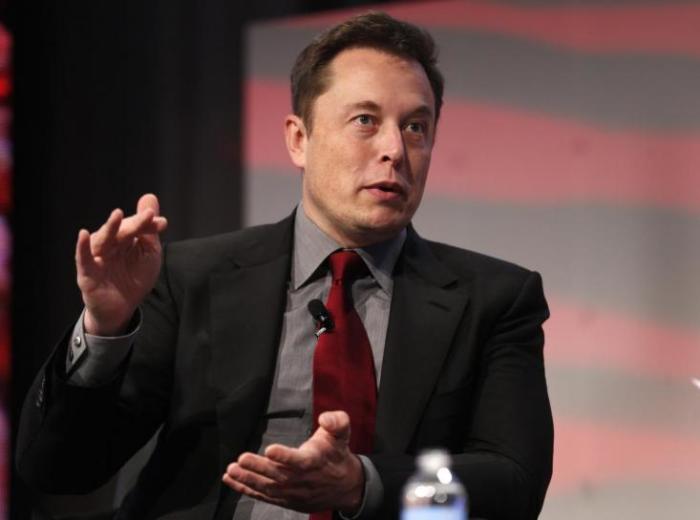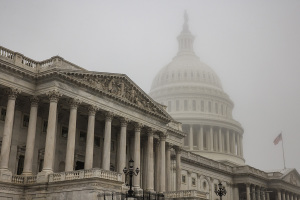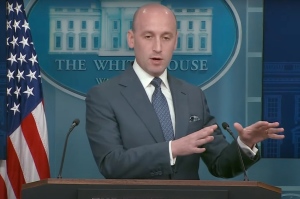Musk vs. Twitter is chaos vs. Tower of Babel

Elon Musk, the world's wealthiest man, just offered to buy Twitter and take the company off the market, making it into a privately held company.
For those who haven't been following the nearly daily barrage of headlines, here's a quick recap:
Musk, a self-described "free-speech absolutist," has been a longtime critic of Twitter, offering frequent public barbs about the platform's tendency to be quick to ban content at odds with certain established positions on a wide range of issues, such as COVID-19, masking and vaccine skepticism.
He has upped the pace of that criticism in the run-up to the current spate of transactions, which began shortly after he posted an online poll asking Twitter users whether they agreed with the idea that Twitter was acting properly as a free-speech platform.
As of this writing, only about 30% thought it was. Then Musk purchased 9.2% of the company's available stock, making him the largest single shareholder at more than thrice the holdings of the company's founder and more than 100 times the holdings of the company's current CEO, though outside funds (as opposed to individual shareholders) still owned considerably more than Musk.
The CEO then announced that Musk would be added to the board of directors. However, board members are limited in the amount of stock they're allowed to own, and Musk would have been capped at about 19%, far from a controlling interest.
Musk tweeted out a complaint that he'd been told to be nicer in his public pronouncements, and the CEO announced that Musk would not be joining the board and offered comments that suggested this might have something to do with the vetting process required of shareholders and the fiduciary responsibility of the board to put shareholders first.
The criticism was odd, though, in light of the fact that Musk is an extremely publicly visible man and not shy about having a veritable permanent force of journalists looking to uncover unsavory items about him. In addition, as the largest shareholder, Musk is highly incentivized to put shareholder interests ahead of management.
The CEO who made that criticism holds a surprisingly small share of stock in the company, which I would estimate to be less than 1% of the share that Musk holds. Finally, Twitter signed the controversial Business Roundtable statement, spearheaded by Blackrock CEO Larry Fink, which endorsed the idea of "stakeholder capitalism."
Stakeholder capitalism demotes the owners of the company to membership in a diffuse and growing list of stakeholders including labor unions, suppliers, society, and even planet Earth. Twitter's public comments about a stakeholder approach, and the company's penchant for alienating roughly half the country, raise the question of who is most shareholder centric: a huge investor with a vision for broadening the conversation, or an under-invested CEO with policies which seem prone to shut down some of the conversations which people are most interested in having on the platform?
Then Musk grabbed the initiative again, making a public offer to buy the company at 54.20 per share, which would be a 42% premium over the price of the stock relative to the pre-announcement level.
Astute observers might note that both numbers correspond to the drug-slang moniker for marijuana, "420," and that Musk not only has been a marijuana advocate but controversially smoked it for the first time live on the Joe Rogan podcast (an unheard of act for the CEO of a Fortune 500 company). Whether that is all a coincidence or not could be cleared up if Musk simply disclosed by what calculation he arrived at that number.
Other non-confidence building details include the fact that the offer was made contingent on future financing. In other words, Musk does not have the necessary backing from the banks to do the deal. He would need that. Yes, he's the world's richest man, but that's only on paper. His wealth is tied up in the stocks of the companies he runs.
He describes himself as "cash poor" which means he doesn't have $39 billion lying around to buy out all the other Twitter investors without first selling shares in his companies, which would hardly instill confidence in those companies.
In fact, share prices in Tesla dropped considerably on the announcement of the offer to buy Twitter. Investors seem concerned about whether Musk can do his day job and also wage this battle to take control of, privatize, and reorganize a social media company, a sector in which he has no operational experience.
As of this writing, Twitter shares are up slightly, indicating that at this point, investors are betting that Musk will not complete this deal, whether he's serious but unable to make it happen, or he's unserious and acting as a provocateur.
Christians have been particularly concerned about Twitter's heavy-handed censorship of any content which uses masculine pronouns for men and feminine pronouns for women, or that simply accurately describes the gender of a person in accordance with long-term English language use.
The Christian Post, for example, had been banned for describing HHS Secretary Rachel Levine as a man. Conservative Christians often feel as though Twitter's policies of content removal are biased against them, and there is data to support that claim (Big Tech censors Christians 'at least once a week.'
While the Bible says a great deal about restraint of speech and carefulness of expression and the imperative to avoid false witness, which might suggest a sympathy with the idea of responsibility in content creation, there is a sense that tech industry culture places a thumb on the scale, imposing responsibility constraints on conservative, religious, and populist excesses and not on the excesses of liberal, secular, and elitist opinion. Further, it is hard to argue that pronoun policing is a matter of reigning in irresponsible speech and not a matter of heavy-handed imposition of a freshly minted ideological imperative.
Musk is a deeply flawed leader (Tesla: A Case Study In Bad Leadership And Governance (NASDAQ:TSLA), but sometimes it takes chaos to break down the Towers of Babel which rise up to make all the world speak, and think, the same way.
Jerry Bowyer is financial economist, president of Bowyer Research, and author of “The Maker Versus the Takers: What Jesus Really Said About Social Justice and Economics.”





























